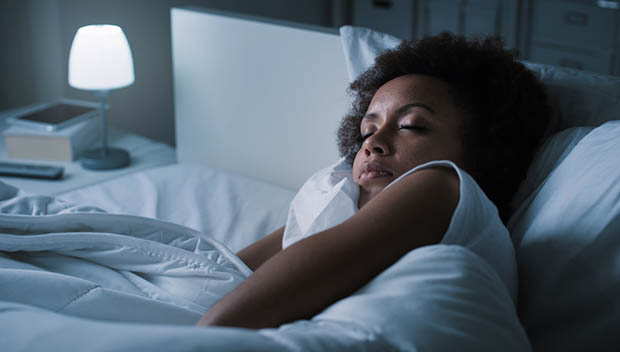
In a go-go-go world, it's easy to attribute being tired to the hustle and bustle of daily life. But there might actually be underlying reasons. Before you reach for another cup of coffee, reevaluate your habits. Whether it's getting up and moving, taking a quick snooze or packing in the protein, check out natural remedies that could put more pep in your step.
You're Sedentary
Do you find yourself slumped over after lunch? Instead of sitting right back down after a midday meal, get stepping. Aerobic exercises, such as walking, can temporarily boost your heart rate. Aim to get up and walk around the block (or the office) at least once an hour to help ward off sleepiness. Not much for walking? Make time to cycle, swim or dance on days you're sitting a lot to get your heart rate pumping.
You Never Nap
Nodding off behind the keyboard? A nap could be just what you need to recharge and get your creative juices flowing. According to Harvard Health, taking a brief nap might boost learning, memory, and creative problem-solving. You don't have to carve out an hour either. According to the National Sleep Foundation, a short 20 to 30 minute nap can help to improve mood, alertness and performance without leaving you with that post-nap groggy feeling. The key: Try to nap earlier in the day so you don't throw off your nighttime sleep patterns.
You're a Fan of Simple Carbs
Skip the white bread in your lunch. Eating refined carbs, such as pasta, white bread, and white flour can cause a rise in blood sugar and a plunge in insulin levels, causing fatigue and weakness. Instead, swap them for long-lasting complex carbs, such as quinoa, sweet potatoes, and whole oats.
You Have Poor Bedtime Habits
A varied sleep schedule can leave you feeling groggy. Regulating your internal clock is integral to helping your body stay asleep at night. According to the National Sleep Foundation, picking a consistent time to sleep and wake up, as well as not hitting the snooze button, can make all the difference.
Pay attention to screen time too. The blue light from your smartphone or laptop can throw off your circadian rhythm(your body's natural sleep schedule) by suppressing the sleep-regulating hormone melatonin. Aim to unplug at least two to three hours before bed.
You Skimp on Protein
Feeling fatigued? It could stem from a lack of protein. The amino acids that comprise protein are essential in transporting oxygen into your blood, so being deficient could leave you lethargic. Since it takes longer to digest, protein also leaves you feeling fuller longer. A lack of protein can also leave you susceptible to low levels of vitamin B-12 and folate, causing anemia, a condition where your body doesn't produce enough red blood cells.
You're Under-Hydrated
Turns out thirst isn't the only sign of dehydration. Research shows that dehydration can leave you feeling fatigued even after a good night's rest. So how much should you drink? The eight glasses a day rule of thumb is slightly outdated. Instead, the National Academies of Sciences, Engineering and Medicine recommends about 15.5 cups (3.7 liters) for men and 11.5 cups (2.7 liters) a day for women. If that number sounds a bit steep, remember it includes fluids included in other beverages and food too.
READ THIS NEXT: 13 Habits Hurting Your Sleep


